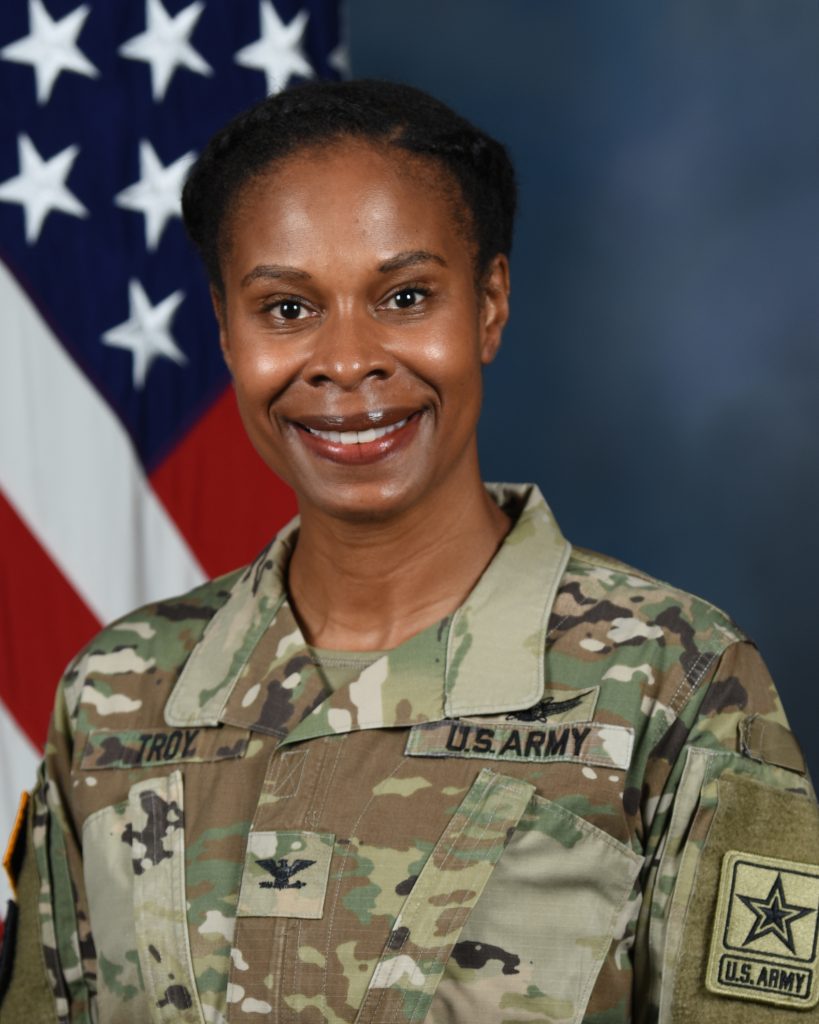A key component of the U.S. military’s success is the vast equipment procurement and logistics system operating behind the scenes supporting the Department of Defense’s (DOD) global operations. U.S. Army Col. Kecia Troy G’12, with 25 years of service, knows just how difficult it is to maintain that support successfully.
Outfitting a modern military with state-of-the-art equipment requires experienced individuals like Troy, who manages the complex process of developing, procuring, and distributing critical capabilities and systems. Troy, who serves as a defense acquisition program manager, says one of the reasons the Army can meet the challenges of delivering these vital capabilities is through its solid partnership with the defense industrial base.

“The systems acquisition community works closely with the defense industry, ensuring they understand our emerging mission requirements and the capabilities that we will need to maintain the technological edge over our peer and near-peer adversaries,” says Troy, who earned a master’s degree in supply chain management from the Whitman School of Management. “This partnership lets us leverage businesses who foster innovative ideas and develop cutting-edge technological solutions.”
While Troy has managed a variety of military system programs, including tactical radio equipment and armored vehicle components, her primary focus has been supporting the needs of the intelligence community. During the early days of her career, she served as an intelligence officer, a position she says introduced her to the realities of military service.
“I was commissioned as a second lieutenant in the Army at 22 years old. At that time, I didn’t truly appreciate or understand the commitment I had made to selfless service or to this nation,” Troy says. “After my initial officer training, I was stationed in Hawaii and thought it would be ‘life on the beach.’ However, the Army and world events had a different plan.”
In 1999, less than six months after arriving in Hawaii, Troy deployed to the Balkans amidst one of the most complex periods of the North Atlantic Treaty Organization’s (NATO) peacekeeping operations in modern history. Although the four-year Bosnian War had already ended, U.S. forces were supporting NATO’s mission to enforce the war’s peace treaty and establish stability in the former Yugoslav region.
“This was the first time I had been face-to-face with the aftermath of war. Our team would sometimes visit orphanages or refugee resettlement camps, it was heartbreaking to see how much they all had lost,” recalls Troy. “We visited the site of the Srebrenica massacre and saw the building’s walls covered with bullet holes from when Bosnian Serbs murdered thousands of the town’s Muslim men and boys as a part of their ethnic cleansing efforts. Again – I experienced all of this before 9/11, so this deployment really opened my eyes to the realities of war and my service to this nation.”
Throughout her career, Troy shifted her specialty from the intelligence community to managing system acquisition programs. That shift ultimately led her to Syracuse University’s campus for the DOD’s logistics and technology master of science degree program.
